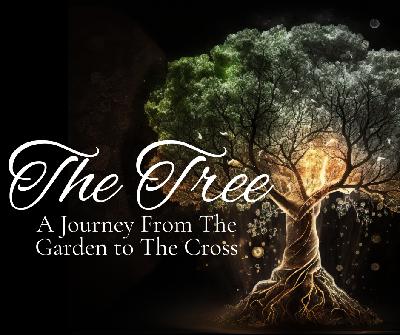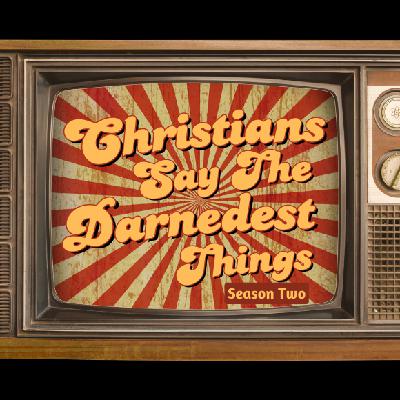Enduring Faith
Description
There are moments in history, like the assassinations of the Kennedy brothers and Martin Luther King Jr., that I find helpful to define as thresholds. Thresholds are what you have to cross to get from one room to another by entering through a door. The shooting at Columbine High School on April 20, 1999 was one such cultural threshold that we crossed as a nation. Before April 20, 1999 there were 183 documented school-related shootings that included everything from suicides, gang-related incidents, and mass shootings. Since crossing that threshold on April 20th, 1999, there have been an additional 435 school shootings.
There are other defining moments that have affected America, such as the attacks on September 11, 2001. The political landscape and how candidates behave has affected our nation indefinitely. Now, we find ourselves in a place where it is not always safe to talk about the political party you belong to or who you voted for without risk to friendships or more. We have crossed a political threshold that I am not sure we will ever recover from.
The 2020 COVID pandemic is another threshold our country crossed and the fruit was not the kind of unity we witnessed the days following 9/11, but anger, resentment, and unprecedented suspicion concerning just about everything. Although the pandemic was global, it left a lasting mark upon Americans.
In 1993, the world wide web went mainstream, and that has affected American culture. In the early 2000’s smart phone went mainstream, and that has affected our culture. In 2023, AI went mainstream resulting in a global shift, and that is affecting our culture. And now, truth is more difficult to discern than ever! Now, instead of helping those in need, we stare at a device that feeds us the kind of information that is literally driving us mad as a society! If we are not staring at our phones, they are used to record acts of violence for show and entertainment.
I am not sure, but it seems to me that we crossed another threshold this past week. I believe we will be able to look back to September 10, 2025 as a,pivotal shift in American culture. I am not sure what that will look like moving forward, but all that I can say is that while my confidence is fixed upon a greater hope, my heart aches for our country.
I do not know a lot about Charlie Kirk, but I did watch some of his open-air debates on some of the college campuses he visited. While I do not agree with all of his viewpoints, I did agree with him on two fundamental core values he had before he was assassinated on Wednesday:
- "When people stop talking, that's when you get violence." Charlie Kirk believed that we should be able to debate charitably even when we do not agree.
- “Jesus saved my life. I’m a sinner. I gave my life to Christ, and that is the most important decision I’ve ever made.” Charlie Kirk believed that Jesus was only hope for the forgiveness of sins, redemption, salvation, and eternal life. It was reported that minutes before Kirk was shot and killed, he shared 2 Corinthians 5:15 with the crowd: “and He died for all, so that those who live would no longer live for themselves, but for Him who died and rose on their behalf.” (2 Cor. 5:15 )
If you believe that Jesus rose from the grave, then that ought to change everything for you. It ought to affect the way you live your life in light of the reality that God does indeed exist and that what He has said about Himself and creation is true. To believe and submit your life before the risen Christ, is to yield to Him as Lord over your life. In so doing, you do not get to decide what parts of the Bible do or do not apply to you unless the Bible (the Word of God) has already made that clear. Many of the things that Charlie said came from a conviction that the Bible was and is the Word of God.
The reason why Kirk’s assassination feels like a significant threshold in history that we as a nation have crossed is because he was assassinated by someone who hated what Charlie Kirk said and stood for. What adds to the heaviness that I feel is that some within the media publicly celebrated his death and many others posted to their TikTok, Instagram, and Facebook accounts celebratory responses to his death. This is why I posted to my Facebook account the following statement:
Timothy, a pastor in Ephesus and the recipient of two of the epistles that are included in the Bible, was beaten by an angry pagan mob, then dragged through the streets, and finally stoned to death by that same angry mob because they did not like what he said about the ungodly nature of the pagan Artemis festival; Timothy spoke up because he was a Christian. The murder of Charlie Kirk and the response of some in the media feels like that to me. I believe his assassination was more than political and that we witnessed the first martyrdom in America.
What I wrote is how I am processing my thoughts and feelings. What I feel is not as or more important then what the Word of God says about what is happening in our world. So, let’s look at James 5:7-20 to see how the Word of God can speak into what we are feeling.
Patiently Watch for His Returning (vv. 7-11)
Just as the farmer understands that he has no control over the germination of the seeds he plants and must wait until his crops grow and mature before they can be reaped, so it is with the return of Christ. How are we to be patient? James tells us four ways that we are to be patient:
- We are to be patient until the coming of the Lord. (v. 7a)
- We are to be patient with the confidence that He is coming. (v. 7b)
- We are to be patient by standing on the promise of His coming. (v. 8)
- We are to be patient by enduring suffering while we wait for His coming. (v. 10)
- We are to be patient until the coming of the Lord. (v. 7a)
The fact of the matter is that Jesus is coming back. How do we know that? We know because He walked out of the tomb! How will He come back? Jesus said when He comes, He will do so with a host of angels and that His return will be visible and it will be noticed! Jesus said that when He comes, “all the tribes of the earth will mourn, and they will see the Son of Man coming on the clouds of heaven with power and great glory” (Matt. 24:30 ). We patiently wait because although it is true that He is coming, He is “coming at an hour you do not expect” (Luke 12:40 ).
- We are to be patient with the confidence that He is coming. (v. 7b)
When Jesus ascended to heaven after He had risen from death while the disciples stared off into the sky, two angels appeared and asked, “ ...and they said, ‘Men of Galilee, why do you stand looking into the sky? This Jesus, who has been taken up from you into heaven, will come in the same way as you have watched Him go into heaven’” (Acts 1:11 ). In some ways, we can do the same thing but just sitting around while staring up into the sky is not what the angels meant when they asked the disciples that question. They continued: “This Jesus, who has been taken up from you into heaven, will come in the same way as you have watched Him go into heaven.”
- We are to be patient by standing on the promise of His coming. (v. 8)
Standing is not sitting. What I mean by the word “Stand” is the same thing that James means with his words: “You too be patient; strengthen your hearts...” You strengthen your heart by filling your mind with the promises of God’s word. You do it with the kinds of promises Jesus left us with: “Do not let your heart be troubled; believe in God, believe also in Me. In My Father’s house are many rooms; if that were not so, I would have told you, because I am going there to prepare a place for you. And if I go and prepare a place for you, I am coming again and will take you to Myself, so that where I am, there you also will be” (John 14:1-3). We strengthen our hearts by doing the kind of things we read in the Bible such as Hebrews 10:24-25, “...let’s consider how to encourage one another in love and good deeds, not abandoning our own meeting together, as is the habit of some people, but encouraging one another; and all the more as you see the day drawing near.”
- We are to be patient by enduring suffering while we wait for His coming. (v. 10)
What was it that enabled the prophets who suffered ridicule, financial hardship, beatings, and even death at the hands of the people God sent them too? They were holding onto a better promise! They were looking for a different city, a “city which has foundations, whose architect and builder is God” (Heb. 11:10 ). This is why Moses refused to be called the son of Pharaoh’s daughter, “choosing rather to endure ill-treatment with the people of God than to











